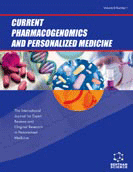
Full text loading...
The research highlights the effect of phytochemical compounds on the correlation of cellular pathways of cytokines and antioxidant enzymes at the molecular levels.
This work examines the effects of phytochemical substances on the expression of (IL1β and IL6, IL10) genes present in different amounts in garlic, grape seed, and pomegranate extracts in various amounts. Within the same framework, genes (SOD1, NFE2L2, JUN) expressing themselves genetically are responsible for the cellular pathways that carry out oxidative and redox reactions in cells.
Extracts of grape seeds (1.2% or 2.4%), pomegranates (1.2% or 2.4%), and garlic (0.5% or 1.2%) were applied to human peripheral blood leukocyte cultures. Real-time polymerase chain reaction (PCR) was utilised to evaluate the expression of genes.
We found that the level transcription of the SOD1 gene negatively correlates with the level transcription of cytokines IL1β when grape seed extract (2.4%) is added to the medium for culturing human blood cells. Furthermore, with the addition of 1.2% and 2.4% grape seed extract, there is a link between the expression of the SOD1 and IL6 genes. We found a positive correlation between the expression of the NFE2L2 and IL10 genes after adding pomegranate extract (1.2%). Finally, following the addition of grape seed extract (1.2%) and garlic extract (1.2%), there is a link observed between the transcription level of the JUN and IL1b genes.
The importance of the study lies in revealing the effect of phytochemicals on the intersection of the two pathways: the inflammatory pathway and the oxidative pathway. Whereas, it gives a clearer picture of the mechanism of action of these compounds as antioxidants and anti-inflammatories, depending on the close relationship between inflammatory properties and oxidative properties.

Article metrics loading...

Full text loading...
References


Data & Media loading...

